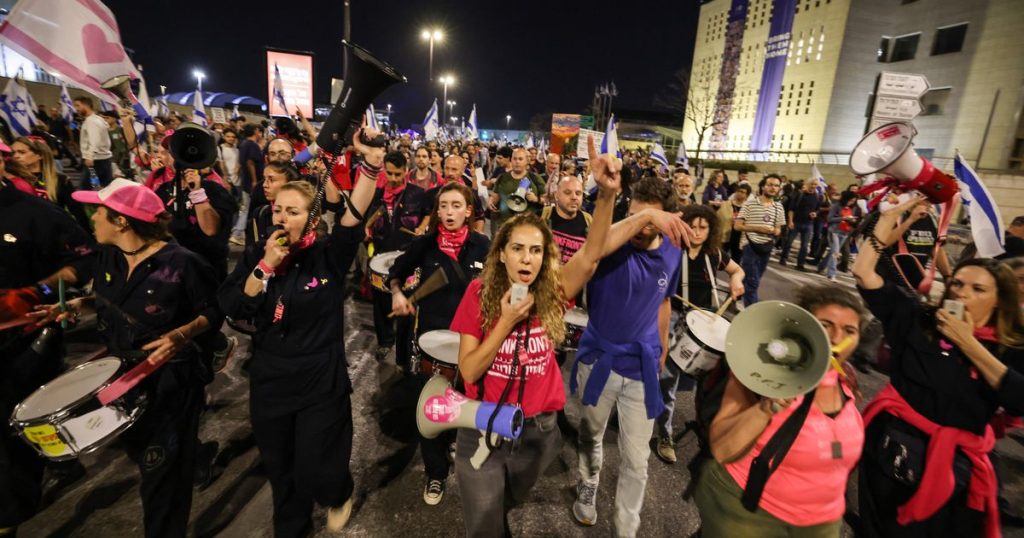Tens of thousands of Israelis gathered in central Jerusalem for the largest anti-government protest since the country went to war in October. Protesters called for a cease-fire deal with Hamas militants in Gaza to release dozens of hostages and for early elections. Prime Minister Benjamin Netanyahu has vowed to destroy Hamas and bring home all hostages, but these goals have been difficult to achieve. Half of the hostages were released during a November cease-fire, but efforts to bring the remaining hostages home have failed, leading to frustration among families of the captives.
Protesters blame Netanyahu for the failures of the war and accuse him of weakening Israel with a political rift last year. They also criticize his handling of relations with the United States and corruption charges that are slowly moving through the courts. Polls show Netanyahu and his coalition trailing behind rivals if elections were held today, but elections are not scheduled until spring 2026. Families of the hostages have refrained from publicly criticizing Netanyahu in the past, but their anger is growing, leading to a significant role in the recent anti-government protests.
Despite calls for new elections, Netanyahu believes that holding them now would paralyze Israel for months and hinder ongoing hostage negotiations. Some families of the hostages agree, believing that changing the prime minister at this time may not help their loved ones return home. Netanyahu has also vowed to launch a military ground offensive in Rafah, a city in southern Gaza, where Hamas battalions remain. In addition, there are ongoing issues within Israeli society, such as resentment over ultra-Orthodox military exemptions, which Netanyahu’s government has been ordered to address.
In addition to the ongoing political and economic challenges facing Israel, the conflict with Gaza continues to escalate. An Israeli airstrike hit a tent camp at a crowded hospital in central Gaza, killing two Palestinians and injuring 15 others, including journalists. Thousands of people have sought shelter in Gaza’s hospitals, viewing them as safe havens from airstrikes. The United Nations has warned of a potential famine in northern Gaza, calling for increased humanitarian aid deliveries. Both Israel and Hamas have been blamed for civilian casualties in the conflict, which has resulted in thousands of deaths.
Amid concerns about wider regional conflict, a Hezbollah militant was killed in a drone strike in southern Lebanon, with tensions rising in the area. In Israel, a Palestinian attacker stabbed three people in the south, leaving them seriously wounded. The situation remains tense and complex, with ongoing violence and humanitarian concerns in Gaza and surrounding areas. Efforts to address the conflict and bring about peace and stability continue, but the road ahead is uncertain and fraught with challenges.


